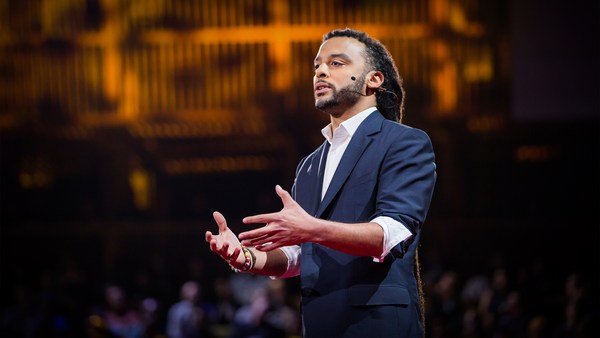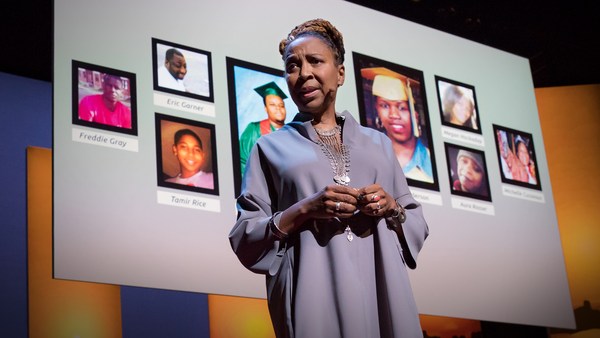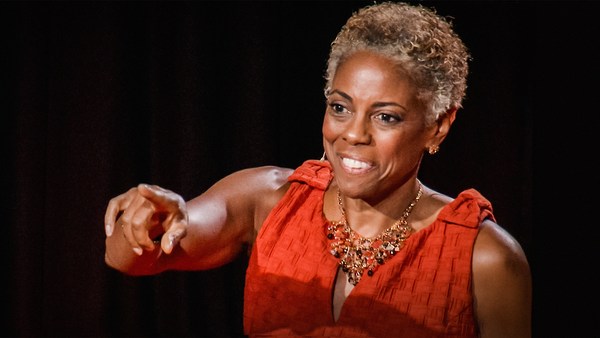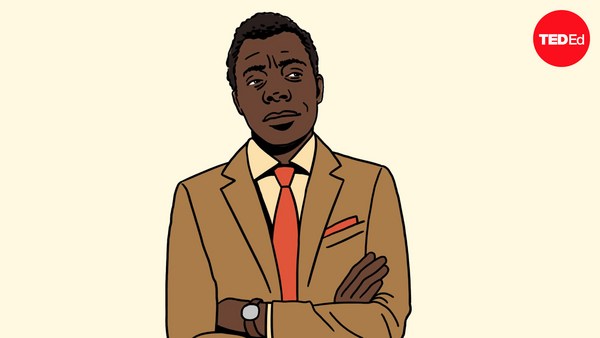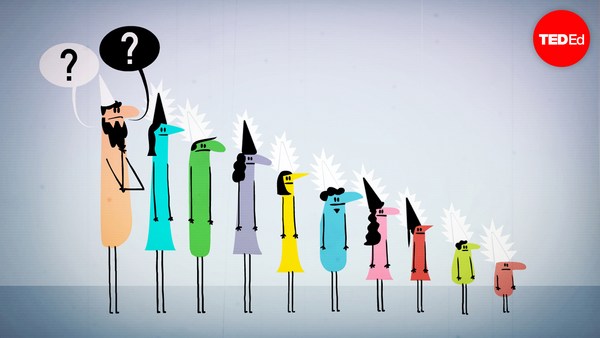What if I told you that time has a race, a race in the contemporary way that we understand race in the United States? Typically, we talk about race in terms of black and white issues. In the African-American communities from which I come, we have a long-standing multi-generational joke about what we call "CP time," or "colored people's time." Now, we no longer refer to African-Americans as "colored," but this long-standing joke about our perpetual lateness to church, to cookouts, to family events and even to our own funerals, remains.
I personally am a stickler for time. It's almost as if my mother, when I was growing up, said, "We will not be those black people." So we typically arrive to events 30 minutes early.
But today, I want to talk to you more about the political nature of time, for if time had a race, it would be white. White people own time.
I know, I know. Making such "incendiary statements" makes us uncomfortable: Haven't we moved past the point where race really matters? Isn't race a heavy-handed concept? Shouldn't we go ahead with our enlightened, progressive selves and relegate useless concepts like race to the dustbins of history? How will we ever get over racism if we keep on talking about race? Perhaps we should lock up our concepts of race in a time capsule, bury them and dig them up in a thousand years, peer at them with the clearly more enlightened, raceless versions of ourselves that belong to the future. But you see there, that desire to mitigate the impact of race and racism shows up in how we attempt to manage time, in the ways we narrate history, in the ways we attempt to shove the negative truths of the present into the past, in the ways we attempt to argue that the future that we hope for is the present in which we're currently living.
Now, when Barack Obama became President of the US in 2008, many Americans declared that we were post-racial. I'm from the academy where we're enamored with being post-everything. We're postmodern, we're post-structural, we're post-feminist. "Post" has become a simple academic appendage that we apply to a range of terms to mark the way we were. But prefixes alone don't have the power to make race and racism a thing of the past. The US was never "pre-race." So to claim that we're post-race when we have yet to grapple with the impact of race on black people, Latinos or the indigenous is disingenuous. Just about the moment we were preparing to celebrate our post-racial future, our political conditions became the most racial they've been in the last 50 years.
So today, I want to offer to you three observations, about the past, the present and the future of time, as it relates to the combating of racism and white dominance.
First: the past. Time has a history, and so do black people. But we treat time as though it is timeless, as though it has always been this way, as though it doesn't have a political history bound up with the plunder of indigenous lands, the genocide of indigenous people and the stealing of Africans from their homeland. When white male European philosophers first thought to conceptualize time and history, one famously declared, "[Africa] is no historical part of the World." He was essentially saying that Africans were people outside of history who had had no impact on time or the march of progress.
This idea, that black people have had no impact on history, is one of the foundational ideas of white supremacy. It's the reason that Carter G. Woodson created "Negro History Week" in 1926. It's the reason that we continue to celebrate Black History Month in the US every February.
Now, we also see this idea that black people are people either alternately outside of the bounds of time or stuck in the past, in a scenario where, much as I'm doing right now, a black person stands up and insists that racism still matters, and a person, usually white, says to them, "Why are you stuck in the past? Why can't you move on? We have a black president. We're past all that."
William Faulkner famously said, "The past is never dead. It's not even past." But my good friend Professor Kristie Dotson says, "Our memory is longer than our lifespan." We carry, all of us, family and communal hopes and dreams with us. We don't have the luxury of letting go of the past. But sometimes, our political conditions are so troubling that we don't know if we're living in the past or we're living in the present. Take, for instance, when Black Lives Matter protesters go out to protest unjust killings of black citizens by police, and the pictures that emerge from the protest look like they could have been taken 50 years ago. The past won't let us go. But still, let us press our way into the present.
At present, I would argue that the racial struggles we are experiencing are clashes over time and space. What do I mean? Well, I've already told you that white people own time. Those in power dictate the pace of the workday. They dictate how much money our time is actually worth. And Professor George Lipsitz argues that white people even dictate the pace of social inclusion. They dictate how long it will actually take for minority groups to receive the rights that they have been fighting for.
Let me loop back to the past quickly to give you an example. If you think about the Civil Rights Movement and the cries of its leaders for "Freedom Now," they were challenging the slow pace of white social inclusion. By 1965, the year the Voting Rights Act was passed, there had been a full 100 years between the end of the Civil War and the conferral of voting rights on African-American communities. Despite the urgency of a war, it still took a full 100 years for actual social inclusion to occur.
Since 2012, conservative state legislatures across the US have ramped up attempts to roll back African-American voting rights by passing restrictive voter ID laws and curtailing early voting opportunities. This past July, a federal court struck down North Carolina's voter ID law saying it "... targeted African-Americans with surgical precision."
Restricting African-American inclusion in the body politic is a primary way that we attempt to manage and control people by managing and controlling time. But another place that we see these time-space clashes is in gentrifying cities like Atlanta, Brooklyn, Philadelphia, New Orleans and Washington, DC -- places that have had black populations for generations. But now, in the name of urban renewal and progress, these communities are pushed out, in service of bringing them into the 21st century.
Professor Sharon Holland asked: What happens when a person who exists in time meets someone who only occupies space? These racial struggles are battles over those who are perceived to be space-takers and those who are perceived to be world-makers. Those who control the flow and thrust of history are considered world-makers who own and master time. In other words: white people. But when Hegel famously said that Africa was no historical part of the world, he implied that it was merely a voluminous land mass taking up space at the bottom of the globe. Africans were space-takers. So today, white people continue to control the flow and thrust of history, while too often treating black people as though we are merely taking up space to which we are not entitled. Time and the march of progress is used to justify a stunning degree of violence towards our most vulnerable populations, who, being perceived as space-takers rather than world-makers, are moved out of the places where they live, in service of bringing them into the 21st century.
Shortened life span according to zip code is just one example of the ways that time and space cohere in an unjust manner in the lives of black people. Children who are born in New Orleans zip code 70124, which is 93 percent white, can expect to live a full 25 years longer than children born in New Orleans zip code 70112, which is 60 percent black. Children born in Washington, DC's wealthy Maryland suburbs can expect to live a full 20 years longer than children born in its downtown neighborhoods.
Ta-Nehisi Coates argues that, "The defining feature of being drafted into the Black race is the inescapable robbery of time." We experience time discrimination, he tells us, not just as structural, but as personal: in lost moments of joy, lost moments of connection, lost quality of time with loved ones and lost years of healthy quality of life.
In the future, do you see black people? Do black people have a future? What if you belong to the very race of people who have always been pitted against time? What if your group is the group for whom a future was never imagined? These time-space clashes -- between protesters and police, between gentrifiers and residents -- don't paint a very pretty picture of what America hopes for black people's future. If the present is any indicator, our children will be under-educated, health maladies will take their toll and housing will continue to be unaffordable.
So if we're really ready to talk about the future, perhaps we should begin by admitting that we're out of time. We black people have always been out of time. Time does not belong to us. Our lives are lives of perpetual urgency. Time is used to displace us, or conversely, we are urged into complacency through endless calls to just be patient. But if past is prologue, let us seize upon the ways in which we're always out of time anyway to demand with urgency freedom now.
I believe the future is what we make it. But first, we have to decide that time belongs to all of us. No, we don't all get equal time, but we can decide that the time we do get is just and free. We can stop making your zip code the primary determinant of your lifespan. We can stop stealing learning time from black children through excessive use of suspensions and expulsions. We can stop stealing time from black people through long periods of incarceration for nonviolent crimes. The police can stop stealing time and black lives through use of excessive force.
I believe the future is what we make it. But we can't get there on colored people's time or white time or your time or even my time. It's our time. Ours.
Thank you.
(Applause)

